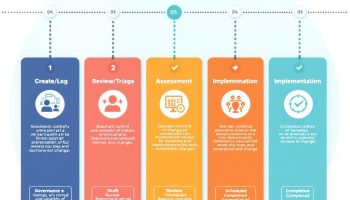
Understanding Project Management Tools for Software Development
Project management tools for software development create a structured framework for planning, executing, and monitoring development projects. They offer essential features including task tracking, time management, code integration, and collaboration capabilities. Software development teams can visualize workflows, manage resources effectively, and deliver high-quality code on time through these centralized platforms.
Business Value of Project Management Tools
Project management tools for software development provide substantial business benefits by streamlining operations, cutting costs, and speeding up time-to-market. They close communication gaps, stop scope creep, and optimize how resources are allocated—directly improving financial outcomes.
For companies tackling complex software projects, these tools give essential visibility into development progress. This helps leadership make decisions based on real data while staying compliant with regulations and maintaining quality standards.
Using these systems strategically boosts business agility. Your organization can respond quickly to market shifts and customer needs. The right project management tools transform how software development projects progress from concept to completion, giving your company a competitive edge in today’s fast-paced digital landscape.
Top 8 Project Management Tools for Software Development: Elevate Your Development Process Today
In today’s fast-paced software development environment, utilizing the right project management tools is crucial for success. These tools not only streamline workflows but also enhance team collaboration and productivity. In this section, we present eight essential project management tools specifically designed for software development. Each tool addresses various aspects of the development process, from task tracking and time management to communication and resource allocation. By implementing these tools, you can improve efficiency, reduce bottlenecks, and ensure that your projects stay on track. Explore each tool’s unique features and discover how they can transform your team’s approach to project management, making it more agile and responsive to the evolving needs of your development projects.
1. Task Tracking and Kanban Boards
Effective project management tools for software development start with robust task tracking capabilities. Kanban boards provide visual workflow management with customizable columns that adapt to your development process. You can easily track work items from backlog to completion with drag-and-drop functionality for instant status updates.
These visual boards create transparency across your development team, offering a clear view of work in progress, completed tasks, and upcoming backlog items. By implementing kanban for project management, you can identify bottlenecks and balance workloads more effectively. The visualization helps prevent task overload while ensuring critical development work progresses smoothly.
Popular examples include Jira, Trello, and Azure Boards, which all offer customizable boards to match your software development workflow. These tools help maintain accountability by clearly showing task ownership and current status at all times.
2. Time Tracking and Estimation Tools
Effective project management tools for software development must include robust time tracking and estimation capabilities. These features help you monitor progress and predict completion timelines accurately. With built-in time logging capabilities, you can record hours spent on each task directly within your workflow. Story point estimation features enable your team to assess complexity and effort requirements for upcoming work.
Many modern tools offer sprint velocity tracking to measure your team’s output over time, helping you make more accurate delivery predictions. Burndown chart generation visually represents work remaining versus time, allowing you to quickly identify if your project is on track or falling behind. These visual analytics are crucial for avoiding common estimation pitfalls that plague software projects.
ClickUp and Monday.com exemplify platforms that excel in this area, offering comprehensive time tracking that integrates seamlessly with other project management functions. Their estimation tools help you establish realistic timelines and effectively communicate progress to stakeholders. By implementing these tools, you can maintain better control over your development schedule and resource allocation.
Expert Insight: Utilize time tracking and estimation tools like ClickUp and Monday.com to enhance project management in software development. These tools provide insights into team velocity and progress, enabling accurate delivery predictions and effective resource allocation. This approach helps avoid common pitfalls, ensuring projects stay on schedule and within budget.
3. Code Repository Integration for Project Management Tools in Software Development
Effective project management tools for software development must seamlessly connect with code repositories to maintain development momentum. When your team uses integrated systems, productivity increases dramatically through automated workflows.
Code repository integration eliminates manual status updates by automatically linking commits to their corresponding tasks. This enhances project collaboration and provides real-time visibility into development progress. For example, when a developer creates a pull request in GitHub, the integration automatically updates the task status in your project management system.
These integrations offer several key benefits:
- Direct linking between issues and related code changes
- Automated status transitions when commits reference task IDs
- Branch visualization showing which features are in development
- Commit history accessible directly from task interfaces
- Simplified code review processes
Most enterprise-grade project management tools support integration with popular version control platforms like GitHub, GitLab, and Bitbucket. These connections create a unified workflow where document version control and code management exist in harmony, reducing context switching for your development team.
Expert Insight: Integrating code repositories with project management tools enhances productivity by automating workflows and linking commits to tasks. This streamlines communication and offers real-time visibility, simplifying project tracking and code reviews. Prioritize these integrations to maintain momentum and reduce context switching for your development team.
4. Automated Reporting and Analytics
Effective project management tools for software development must include robust reporting capabilities. These features transform raw project data into actionable insights that drive decision-making. You can leverage sprint performance metrics to identify bottlenecks and optimize your development cycles. Team velocity tracking helps predict future capacity and set realistic deadlines for your projects.
Custom dashboard creation allows you to visualize exactly what matters to your team, whether that’s bug resolution times or feature completion rates. Many tools offer resource utilization insights that help you optimize capacity planning and prevent team burnout. This data-driven approach enables continuous improvement throughout your development process.
Popular platforms like Jira Reports and Azure DevOps Analytics offer comprehensive visualization options to track your key performance indicators. These tools can automatically generate burndown charts, cumulative flow diagrams, and velocity reports without manual data entry. By configuring automated reporting, you’ll spend less time gathering data and more time acting on the valuable insights it provides.
Expert Insight: Leverage automated reporting tools to transform raw project data into actionable insights. Focus on custom dashboards that visualize key metrics, enabling quick decision-making. By reducing manual data entry, you’ll enhance team efficiency, optimize capacity planning, and facilitate continuous improvement in your software development processes.
5. Communication and Collaboration in Project Management Tools
Effective project management tools for software development require **robust communication features** that keep your team connected. When selecting tools for your development projects, prioritize platforms that offer **seamless collaboration** capabilities.
Most leading project management tools include integrated commenting systems that allow developers, designers, and stakeholders to discuss tasks directly within the tool. This eliminates the need to switch between multiple applications and creates a **centralized communication hub**. For instance, you can enhance team collaboration on projects by using @mentions to notify specific team members when their input is needed.
Document management is another crucial aspect of these tools. They provide **secure file sharing** and **version control**, ensuring everyone accesses the most current documents. This is particularly important for technical specifications and design assets that frequently change throughout development cycles.
Real-time updates and activity feeds keep your entire team informed of progress without constant status meetings. When integrated with communication platforms like Slack or Microsoft Teams, these project management tools create a comprehensive ecosystem that supports both **structured** and **spontaneous communication**.
The best tools also support:
- Threaded discussions to keep conversations organized
- Rich text formatting for clear communication
- Screen sharing capabilities for visual explanations
- Integration with email for external stakeholder communication
Expert Insight: Choose project management tools with integrated communication features to enhance collaboration among team members, minimizing context-switching. Look for capabilities like @mentions, threaded discussions, and real-time updates, along with secure document management for seamless access to crucial files. Integrations with platforms like Slack further streamline communication efficacy.
6. Sprint Planning and Agile Tools
Effective project management tools for software development must include robust sprint planning features. When selecting tools for your development team, prioritize those that offer comprehensive sprint backlog management. These systems allow you to organize user stories, bugs, and tasks into manageable work increments, helping teams commit to realistic sprint goals.
User story mapping functionality enables you to visualize the customer journey and break down complex requirements into actionable development tasks. This feature proves invaluable when collaborating on projects with stakeholders who may not understand technical details.
The best project management platforms also include epic and feature tracking capabilities to organize related stories into larger work packages. This hierarchical organization keeps development focused on delivering complete functionality rather than disconnected features.
Release planning tools deserve special attention as they help coordinate multiple teams working toward common product milestones. They provide visibility into dependencies and potential bottlenecks in your development process.
Popular options like Jira Agile and Azure Boards offer:
- Customizable sprint boards
- Velocity tracking
- Burndown/burnup charts
- Release roadmaps
- Integration with testing tools
7. Resource Management Capabilities for Efficient Software Project Delivery
Effective project management tools for software development must include robust resource management features to ensure optimal team performance. When selecting software tools, prioritize those that offer comprehensive capacity planning capabilities. These tools help you visualize team bandwidth across sprints and allocate resources accordingly to prevent burnout.
The best project management tools enable skill tracking, allowing you to match the right developers to appropriate tasks based on their expertise in specific programming languages or technologies. This strategic allocation maximizes productivity while promoting professional growth within your team.
Workload balancing is another critical feature to look for in project management tools for software development. These solutions provide visual representations of each team member’s current assignments, helping you identify and address potential bottlenecks before they affect project timelines. You can implement effective capacity planning to ensure your development team maintains consistent output without overextension.
Additionally, availability calendars help coordinate developer schedules, accounting for vacations, training days, and other commitments that impact project resourcing. Tools like Resource Guru and Float exemplify these capabilities, offering intuitive interfaces for managing your software development team’s time and talents efficiently.

8. Customizable Workflow Automation
Modern project management tools for software development shine when they allow you to automate repetitive processes. Creating custom fields helps you track development-specific metrics that standard fields don’t capture. Automated task assignment ensures work moves seamlessly between team members based on predefined rules, reducing manual handoffs and administrative overhead.
Trigger-based notifications keep everyone informed exactly when they need to be, without flooding inboxes unnecessarily. You can establish process templates that standardize your development workflows across projects, ensuring consistency and reducing onboarding time for new team members.
These automation capabilities become particularly valuable when integrated with your CI/CD pipelines, creating a seamless connection between your project collaboration tools and development environments. This integration helps eliminate context-switching and provides real-time feedback loops.
Key automation features to look for include:
- Automatic status updates based on code commits
- Custom webhooks for third-party service integration
- Workflow rules that trigger based on field changes
- Automated testing notifications
- Cross-platform integrations like Zapier or Power Automate
Project management tools for software development serve as comprehensive platforms that enable teams to efficiently track, collaborate, and deliver complex software projects through features like Kanban boards, time tracking, code repository integration, and automated reporting. These specialized solutions provide the necessary structure and visibility to manage the unique challenges of software development, from task allocation and sprint planning to resource management and workflow automation.
Project management tools for software development are essential for enterprise users because they directly impact productivity, reduce costly coordination overhead, and provide the transparency needed for informed decision-making in complex technical projects. By centralizing development workflows, these tools eliminate silos between teams, standardize processes across departments, and generate detailed analytics that help organizations optimize resource allocation, meet deadlines consistently, and deliver high-quality software products that align with strategic business objectives.
Conclusion
Project management tools for software development form the backbone of efficient delivery processes by integrating essential features like Kanban boards, time tracking, code repository connections, and automated reporting. These tools create a unified ecosystem where tasks flow smoothly from conception to completion, enabling teams to collaborate effectively, maintain visibility across complex projects, and respond quickly to changing requirements. With capabilities spanning from sprint planning to workflow automation, these platforms transform chaotic development processes into structured, measurable workflows that consistently deliver quality software.
Actionable Steps
- Evaluate your current development workflow and identify bottlenecks that could be addressed by implementing specialized project management tools with features like Kanban boards and automated reporting.
- Prioritize tools that offer seamless integration with your existing code repositories to create automated workflows that reduce manual status updates and context switching.
- Implement time tracking and estimation features to gather data on team velocity, enabling more accurate delivery predictions and effective resource allocation.
- Set up customizable dashboards that visualize your most important metrics, allowing for quick identification of issues and data-driven decision making.
- Establish standardized workflows with automation capabilities to reduce administrative overhead and ensure consistency across development projects.






